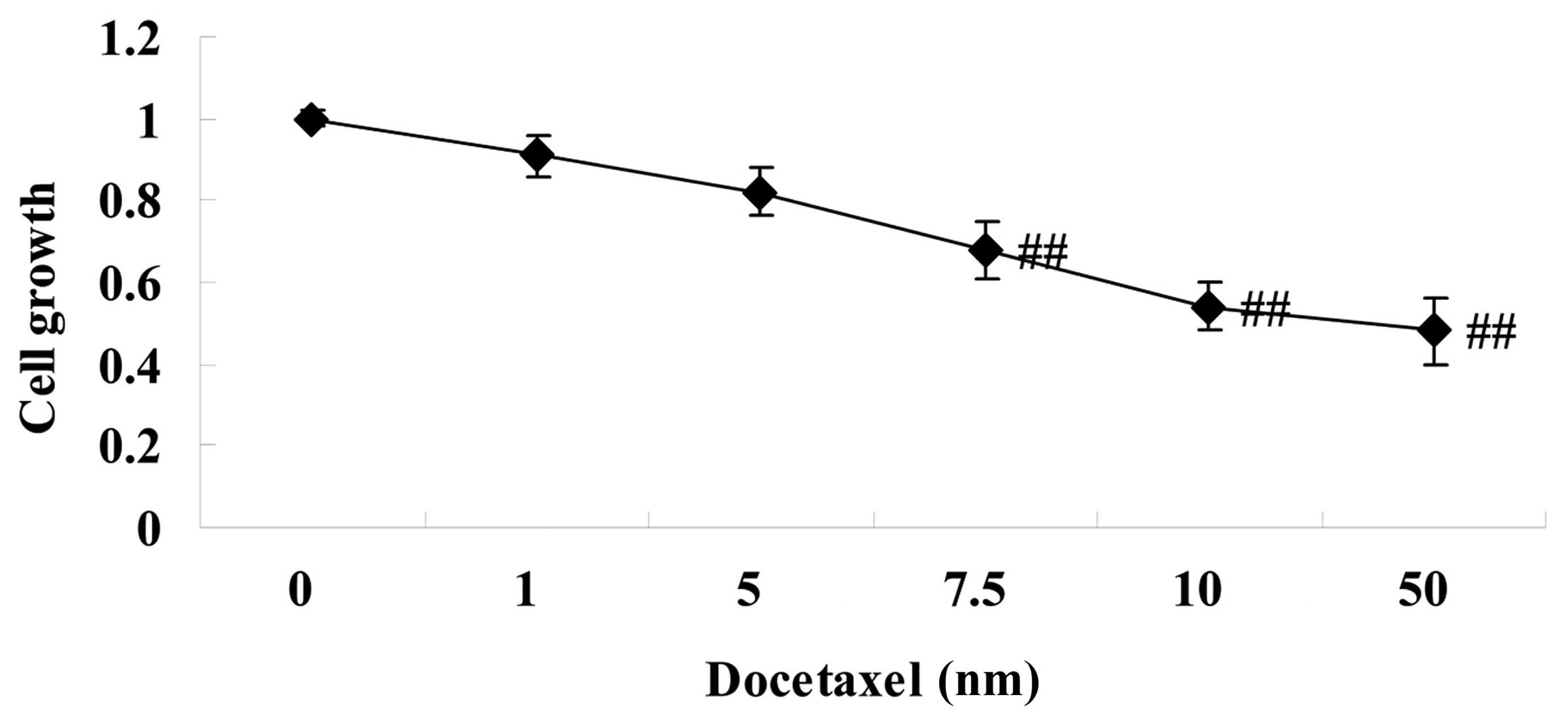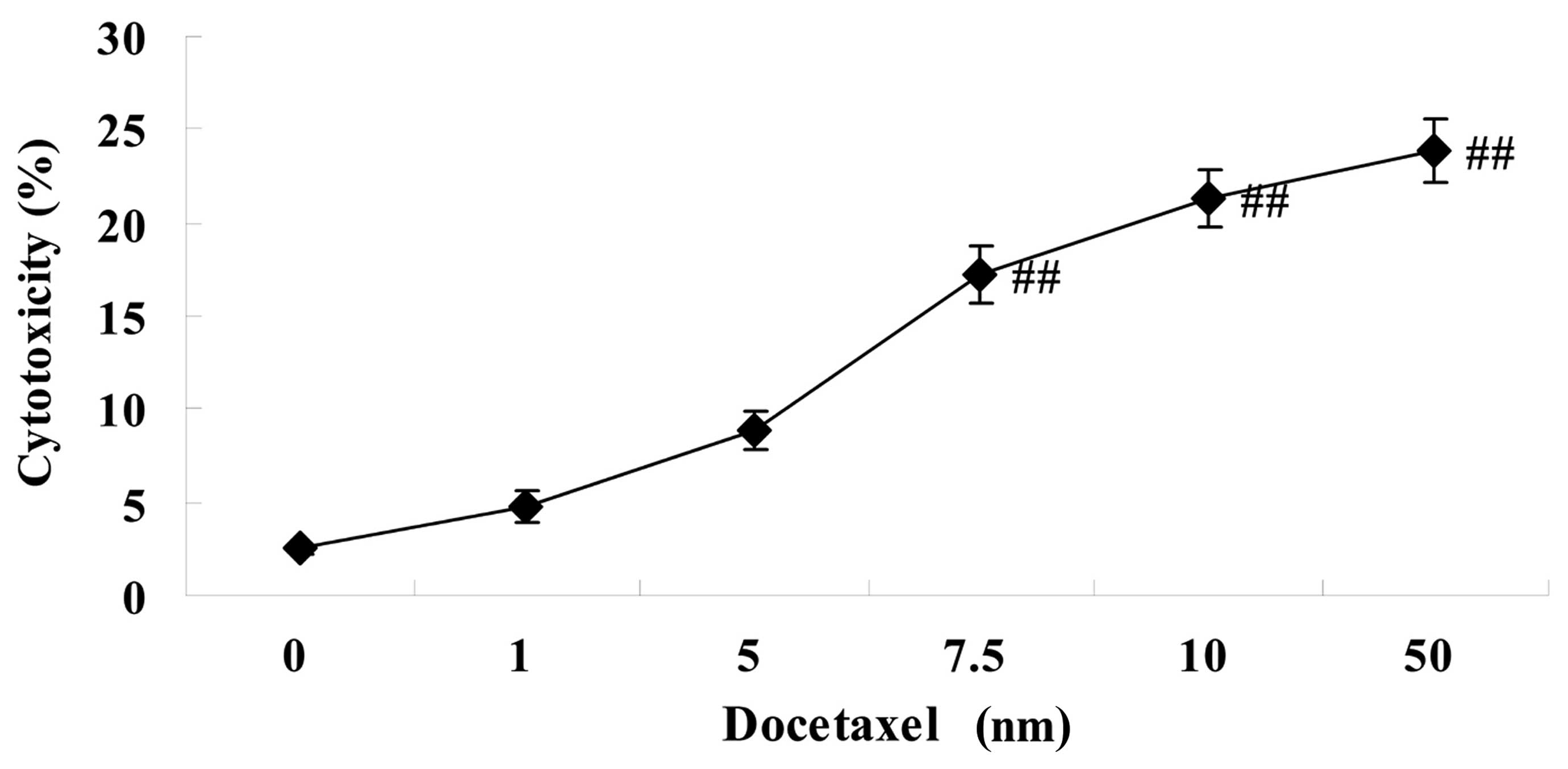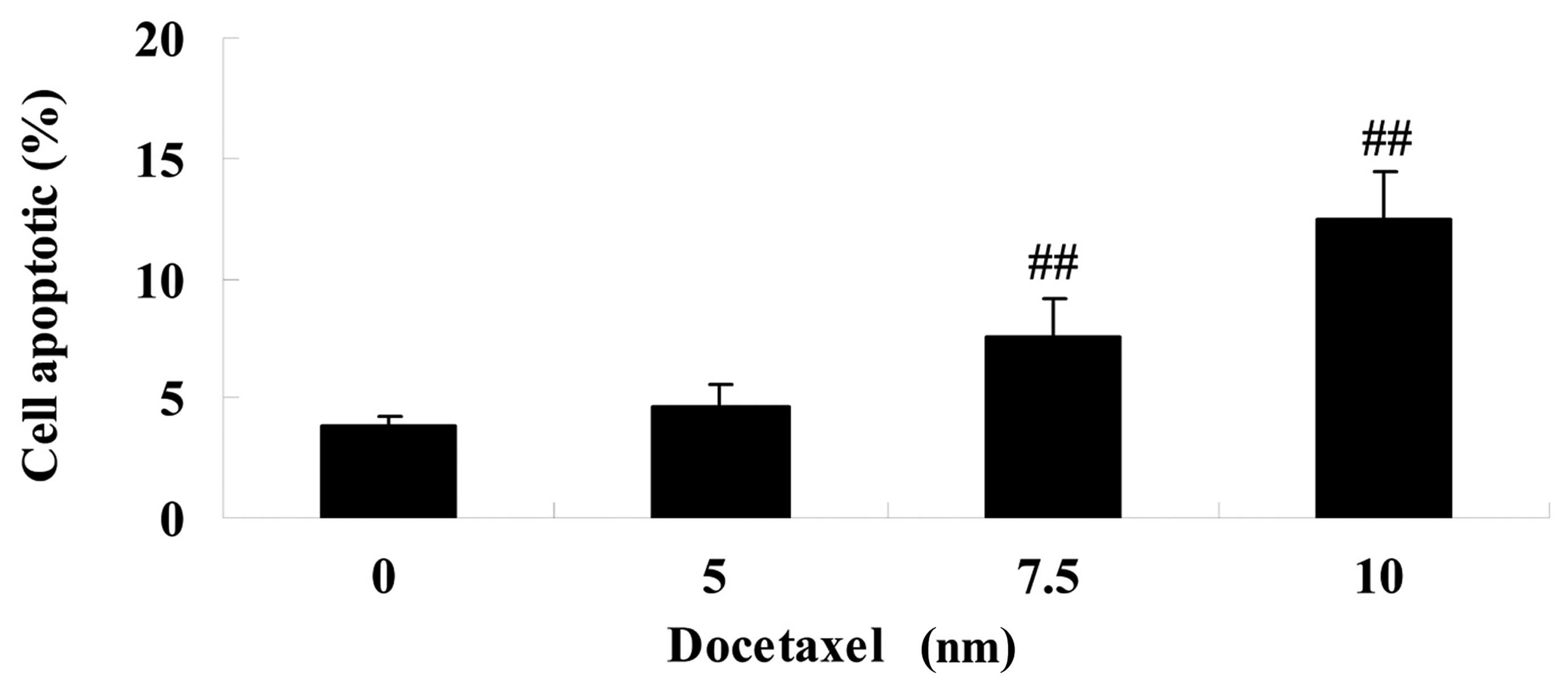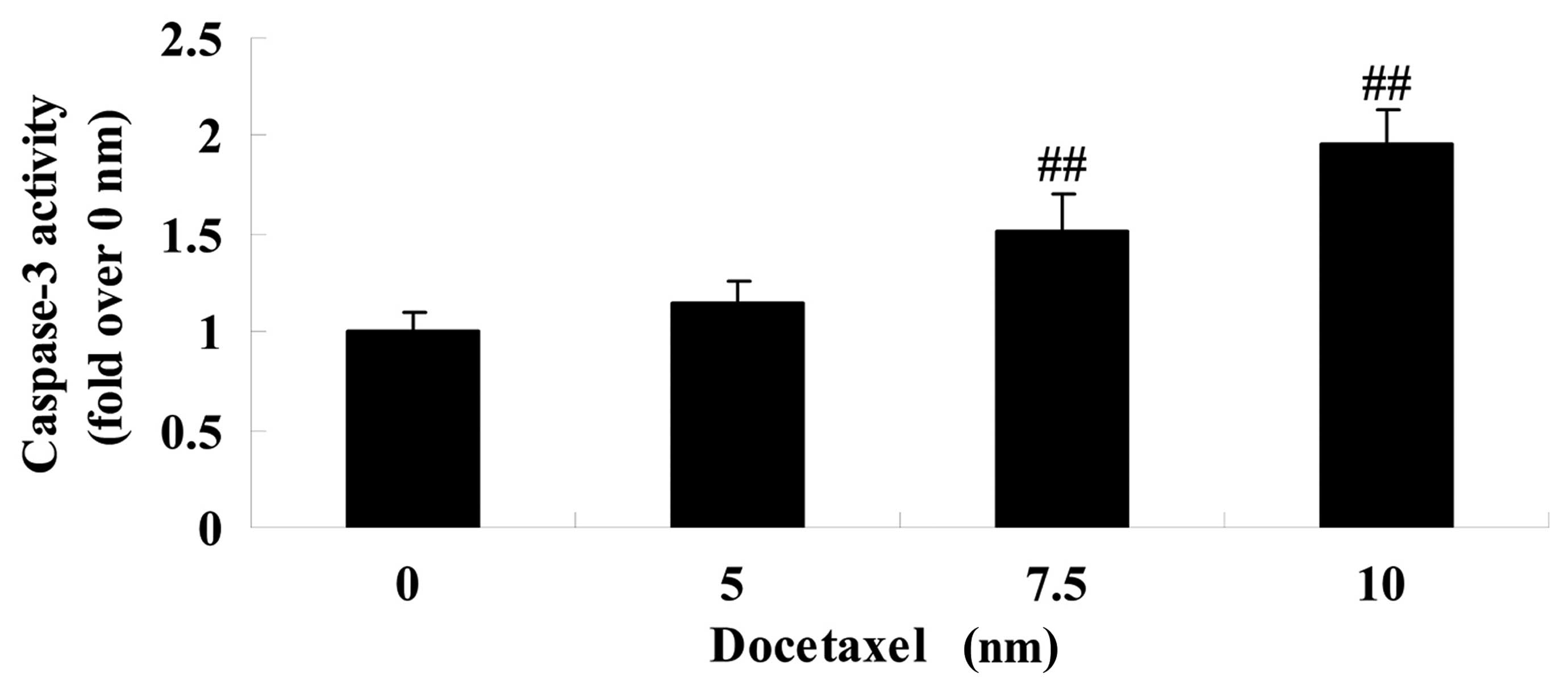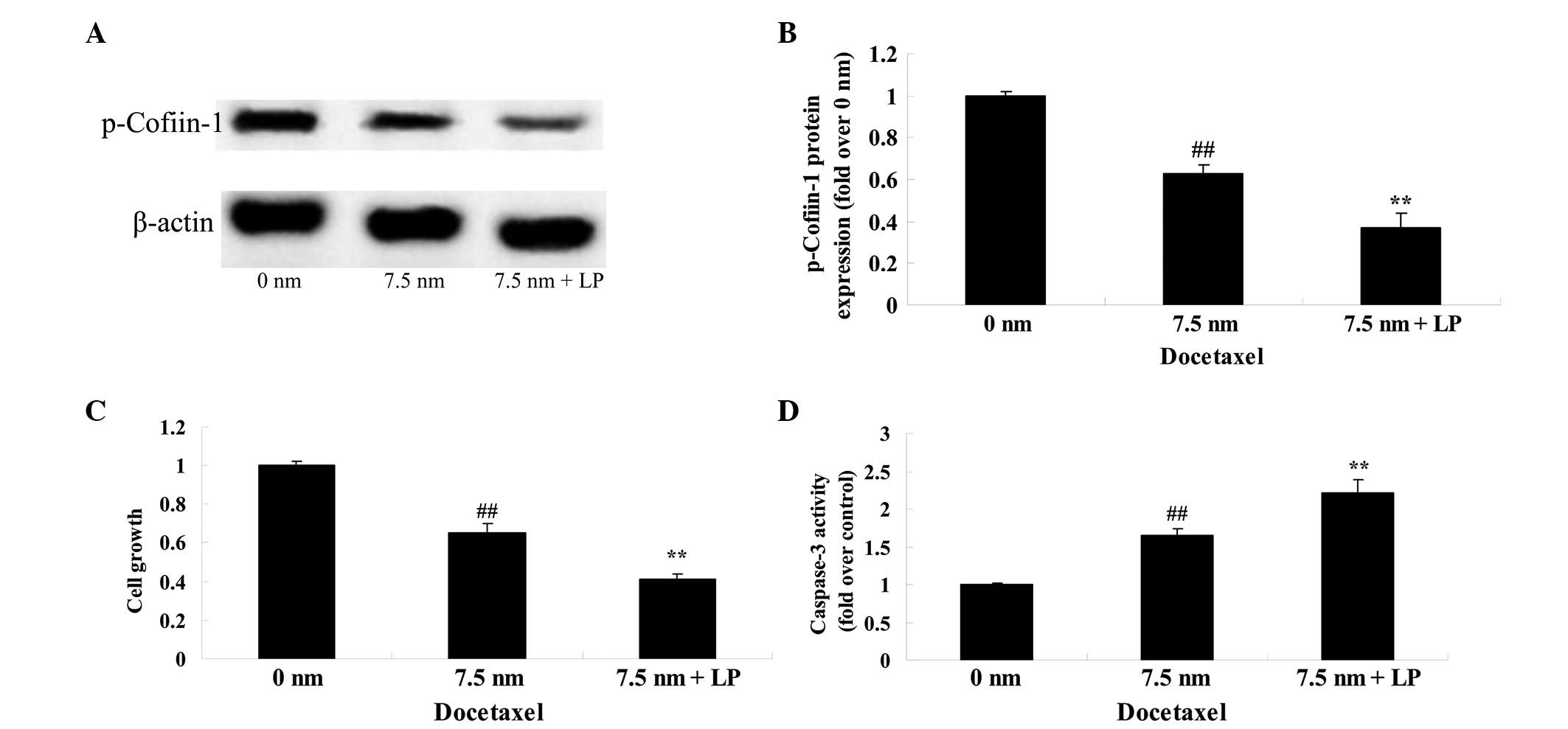|
1
|
Yang F, Song L, Wang H, Wang J, Xu Z and
Xing N: Quercetin in prostate cancer: Chemotherapeutic and
chemopreventive effects, mechanisms and clinical application
potential (Review). Oncol Rep. 33:2659–2668. 2015.PubMed/NCBI
|
|
2
|
Crocker-Buque T and Pollock AM: Appraising
the quality of sub-Saharan African cancer registration systems that
contributed to GLOBOCAN 2008: A review of the literature and
critical appraisal. J R Soc Med. 108:57–67. 2015. View Article : Google Scholar : PubMed/NCBI
|
|
3
|
Huang L, Kuwahara I and Matsumoto K: EWS
represses cofilin 1 expression by inducing nuclear retention of
cofilin 1 mRNA. Oncogene. 33:2995–3003. 2014. View Article : Google Scholar
|
|
4
|
Sundram V, Chauhan SC, Ebeling M and Jaggi
M: Curcumin attenuates β-catenin signaling in prostate cancer cells
through activation of protein kinase D1. PLoS One. 7:e353682012.
View Article : Google Scholar
|
|
5
|
Zhou J, Wang Y, Fei J and Zhang W:
Expression of cofilin 1 is positively correlated with the
differentiation of human epithelial ovarian cancer. Oncol Lett.
4:1187–1190. 2012.PubMed/NCBI
|
|
6
|
Li M, Yin J, Mao N and Pan L: Upregulation
of phosphorylated cofilin 1 correlates with taxol resistance in
human ovarian cancer in vitro and in vivo. Oncol Rep. 29:58–66.
2013.
|
|
7
|
Tahtamouni LH, Shaw AE, Hasan MH, Yasin SR
and Bamburg JR: Non-overlapping activities of ADF and cofilin-1
during the migration of metastatic breast tumor cells. BMC Cell
Biol. 14:452013. View Article : Google Scholar : PubMed/NCBI
|
|
8
|
Quintela-Fandino M, Arpaia E, Brenner D,
Goh T, Yeung FA, Blaser H, Alexandrova R, Lind EF, Tusche MW,
Wakeham A, et al: HUNK suppresses metastasis of basal type breast
cancers by disrupting the interaction between PP2A and cofilin-1.
Proc Natl Acad Sci USA. 107:2622–2627. 2010. View Article : Google Scholar : PubMed/NCBI
|
|
9
|
Le Devedec SE, Geverts B, de Bont H, Yan
K, Verbeek FJ, Hout-smuller AB and van de Water B: The residence
time of focal adhesion kinase (FAK) and paxillin at focal adhesions
in renal epithelial cells is determined by adhesion size, strength
and life cycle status. J Cell Sci. 125:4498–4506. 2012. View Article : Google Scholar : PubMed/NCBI
|
|
10
|
Ishibe S, Joly D, Liu ZX and Cantley LG:
Paxillin serves as an ERK-regulated scaffold for coordinating FAK
and Rac activation in epithelial morphogenesis. Mol Cell.
16:257–267. 2004. View Article : Google Scholar : PubMed/NCBI
|
|
11
|
Thomas PE, Peters-Golden M, White ES,
Thannickal VJ and Moore BB: PGE(2) inhibition of TGF-beta1-induced
myofi-broblast differentiation is Smad-independent but involves
cell shape and adhesion-dependent signaling. Am J Physiol Lung Cell
Mol Physiol. 293:L417–L428. 2007. View Article : Google Scholar : PubMed/NCBI
|
|
12
|
Beer TM, Myrthue A and Eilers KM:
Rationale for the development and current status of calcitriol in
androgen-independent prostate cancer. World J Urol. 23:28–32. 2005.
View Article : Google Scholar : PubMed/NCBI
|
|
13
|
Che CL, Zhang YM, Zhang HH, Sang YL, Lu B,
Dong FS, Zhang LJ and Lv FZ: DNA microarray reveals different
pathways responding to paclitaxel and docetaxel in non-small cell
lung cancer cell line. Int J Clin Exp Pathol. 6:1538–1548.
2013.PubMed/NCBI
|
|
14
|
Guillen KP, Restuccia A, Kurkjian C and
Harrison RG: Annexin V-Directed enzyme prodrug therapy plus
docetaxel for the targeted treatment of pancreatic cancer.
Pancreas. 44:945–952. 2015. View Article : Google Scholar : PubMed/NCBI
|
|
15
|
Tamatani T, Ferdous T, Takamaru N, Hara K,
Kinouchi M, Kuribayashi N, Ohe G, Uchida D, Nagai H, Fujisawa K and
Miyamoto Y: Antitumor efficacy of sequential treatment with
docetaxel and 5-fluorouracil against human oral cancer cells. Int J
Oncol. 41:1148–1156. 2012.PubMed/NCBI
|
|
16
|
Quann P, Jarrard DF and Huang W: Current
prostate biopsy protocols cannot reliably identify patients for
focal therapy: Correlation of low-risk prostate cancer on biopsy
with radical prostatectomy findings. Int J Clin Exp Pathol.
3:401–407. 2010.PubMed/NCBI
|
|
17
|
Niu WB, Gui SL, Lin YL, Fu XL, Ma JG and
Li WP: Promoter methylation of protocadherin8 is an independent
prognostic factor for biochemical recurrence of early-stage
prostate cancer. Med Sci Monit. 20:2584–2589. 2014. View Article : Google Scholar : PubMed/NCBI
|
|
18
|
Cheng WS, Tao H, Hu EP, Liu S, Cai HR, Tao
XL, Zhang L, Mao JJ and Yan DL: Both genes and lncRNAs can be used
as biomarkers of prostate cancer by using high throughput
sequencing data. Eur Rev Med Pharmacol Sci. 18:3504–3510.
2014.PubMed/NCBI
|
|
19
|
Pérez-Martínez FC, Carrión B, Lucío MI,
Rubio N, Herrero MA, Vázquez E and Ceña V: Enhanced
docetaxel-mediated cyto-toxicity in human prostate cancer cells
through knockdown of cofilin-1 by carbon nanohorn delivered siRNA.
Biomaterials. 33:8152–8159. 2012. View Article : Google Scholar
|
|
20
|
Robertson LK and Ostergaard HL: Paxillin
associates with the microtubule cytoskeleton and the immunological
synapse of CTL through its leucine-aspartic acid domains and
contributes to microtubule organizing center reorientation. J
Immunol. 187:5824–5833. 2011. View Article : Google Scholar : PubMed/NCBI
|
|
21
|
Hu YL and Chien S: Dynamic motion of
paxillin on actin filaments in living endothelial cells. Biochem
Biophys Res Commun. 357:871–876. 2007. View Article : Google Scholar : PubMed/NCBI
|
|
22
|
Yamauchi J, Miyamoto Y, Murabe M, Fujiwara
Y, Sanbe A, Fujita Y, Murase S and Tanoue A: Gadd45a, the gene
induced by the mood stabilizer valproic acid, regulates neurite
outgrowth through JNK and the substrate paxillin in N1E-115
neuroblastoma cells. Exp Cell Res. 313:1886–1896. 2007. View Article : Google Scholar : PubMed/NCBI
|
|
23
|
Lu H, Murtagh J and Schwartz EL: The
microtubule binding drug laulimalide inhibits vascular endothelial
growth factor-induced human endothelial cell migration and is
synergistic when combined with docetaxel (taxotere). Mol Pharmacol.
69:1207–1215. 2006. View Article : Google Scholar : PubMed/NCBI
|















